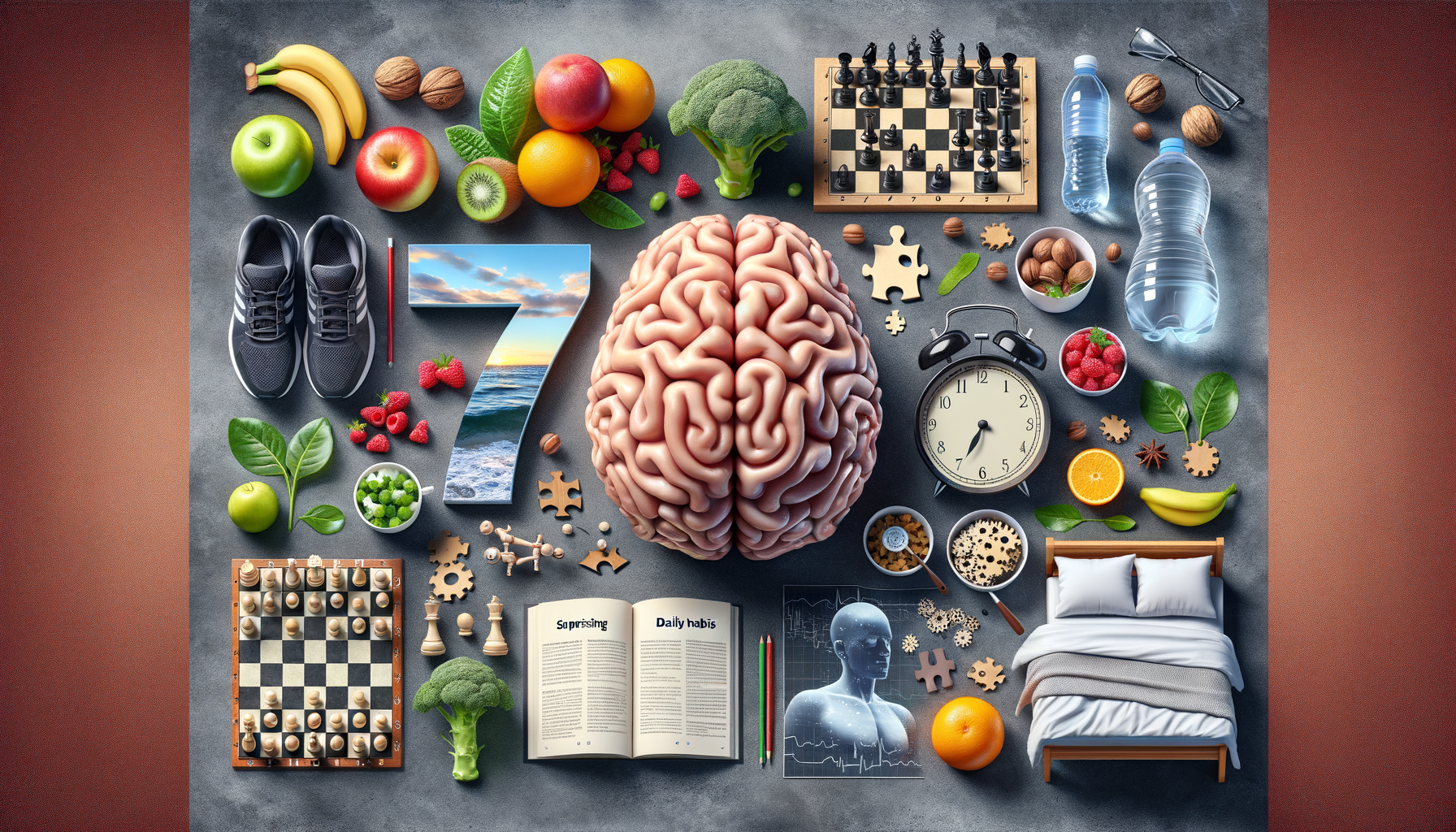7 SURPRISING DAILY HABITS THAT COULD SUPPORT A HEALTHIER BRAIN
The Power of a Balanced Diet When it comes to brain health, nutrition plays a pivotal role. A balanced diet rich in essential nutrients can significantly impact cognitive function and mental clarity. Incorporating foods high in omega-3 fatty acids, such as fish and flaxseeds, supports brain cell development and communication. Antioxidant-rich fruits and vegetables, like
The Power of a Balanced Diet
When it comes to brain health, nutrition plays a pivotal role. A balanced diet rich in essential nutrients can significantly impact cognitive function and mental clarity. Incorporating foods high in omega-3 fatty acids, such as fish and flaxseeds, supports brain cell development and communication. Antioxidant-rich fruits and vegetables, like berries and leafy greens, help protect the brain from oxidative stress and inflammation.
Moreover, whole grains, nuts, and seeds provide a steady source of energy, ensuring optimal brain performance throughout the day. These foods release glucose slowly, preventing the spikes and crashes that can affect concentration and mood. By maintaining a diet that includes these elements, individuals can foster a healthier brain environment.
Key components of a brain-boosting diet include:
- Omega-3 fatty acids for cell membrane health
- Antioxidants to combat oxidative stress
- Whole grains for sustained energy
Embracing a balanced diet not only supports physical health but also enhances cognitive abilities and overall mental well-being.
Regular Physical Activity
Engaging in regular physical activity is not only beneficial for the body but also for the brain. Exercise increases blood flow to the brain, which can help improve memory and cognitive function. Activities like walking, cycling, or dancing stimulate the release of endorphins, which are chemicals that enhance mood and reduce stress.
Research has shown that physical activity can promote the growth of new brain cells, particularly in the hippocampus, an area critical for memory and learning. Regular exercise also helps reduce the risk of neurodegenerative diseases, such as Alzheimer’s, by keeping the brain active and healthy.
Consider incorporating the following exercises into your routine:
- Aerobic exercises for cardiovascular health
- Strength training to enhance muscle and bone strength
- Flexibility exercises like yoga to improve balance and coordination
By making physical activity a daily habit, individuals can support their brain health, enhancing both cognitive function and emotional well-being.

The Importance of Quality Sleep
Quality sleep is essential for maintaining a healthy brain. During sleep, the brain undergoes critical processes that consolidate memories, clear out toxins, and prepare for the next day. Lack of sleep can impair cognitive functions such as attention, learning, and decision-making.
Establishing a regular sleep schedule and creating a restful environment can significantly enhance sleep quality. This includes minimizing screen time before bed, maintaining a comfortable room temperature, and practicing relaxation techniques such as meditation or deep breathing.
Consider these tips for better sleep:
- Stick to a consistent sleep schedule
- Create a calming bedtime routine
- Avoid caffeine and heavy meals before bedtime
Prioritizing sleep not only rejuvenates the body but also sharpens the mind, contributing to overall brain health and functionality.
Social Connections and Brain Health
Having strong social connections is crucial for maintaining a healthy brain. Social interactions stimulate cognitive processes by engaging memory, attention, and problem-solving skills. They also provide emotional support, which can combat feelings of loneliness and depression, both of which are risk factors for cognitive decline.
Participating in group activities, joining clubs, or simply spending time with loved ones can enhance brain health by providing mental stimulation and reducing stress levels. These interactions encourage the brain to form new neural connections, promoting adaptability and resilience.
Ways to foster social connections include:
- Engaging in community events or volunteer work
- Joining interest-based groups or clubs
- Maintaining regular contact with friends and family
By nurturing social relationships, individuals can enrich their lives and support their cognitive well-being.
The Role of Lifelong Learning
Continuous learning is a powerful tool for maintaining brain health. Engaging in new and challenging activities stimulates neural pathways, enhancing cognitive flexibility and problem-solving skills. Lifelong learning can take many forms, from formal education to hobbies and self-directed study.
Learning new skills, such as playing a musical instrument or speaking a foreign language, can significantly boost brain function. These activities demand focus, memory, and coordination, all of which contribute to a more resilient and adaptable brain.
Consider these ways to incorporate learning into your routine:
- Enroll in online courses or workshops
- Explore new hobbies or crafts
- Read regularly to expand knowledge and vocabulary
By embracing a mindset of lifelong learning, individuals can keep their brains active and engaged, supporting cognitive health throughout their lives.